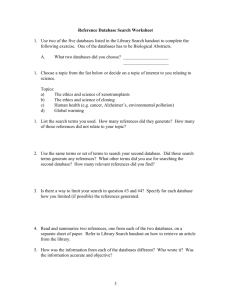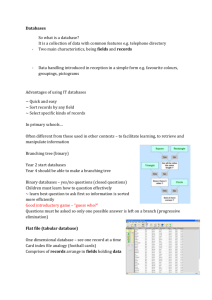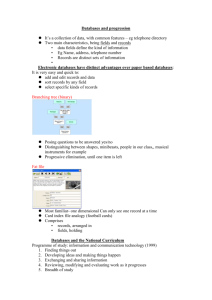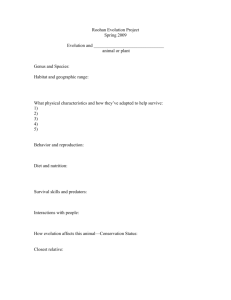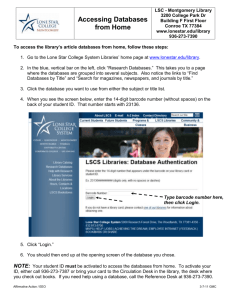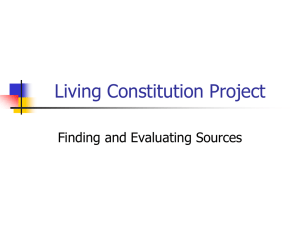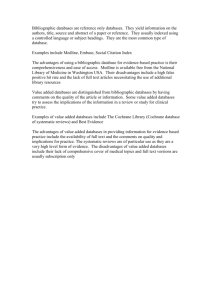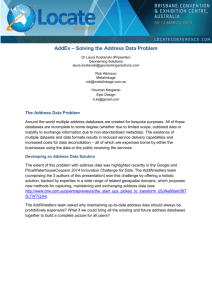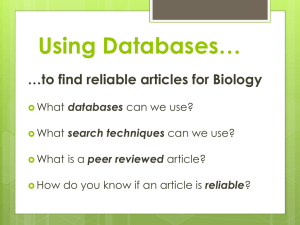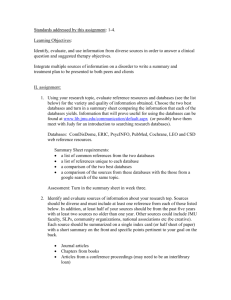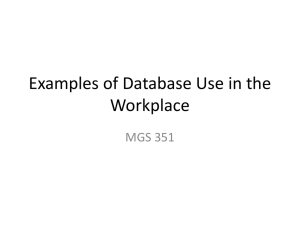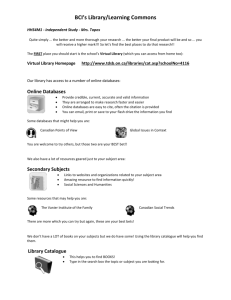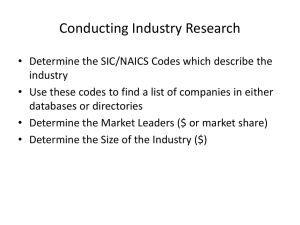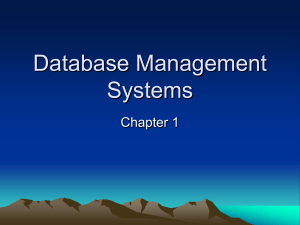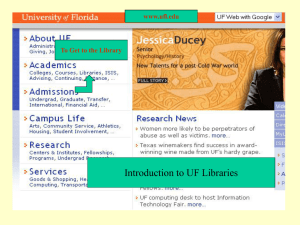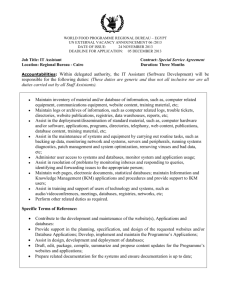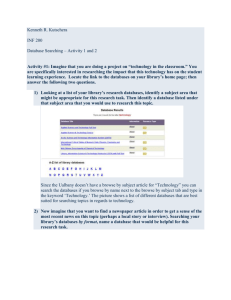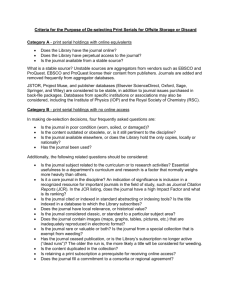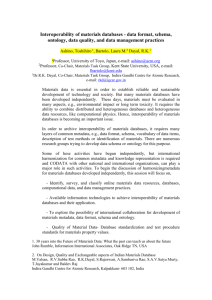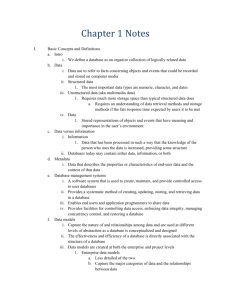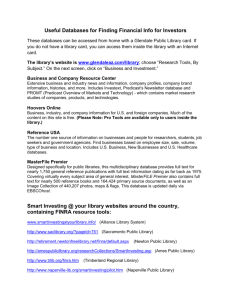Session 3 - Studengroup
advertisement
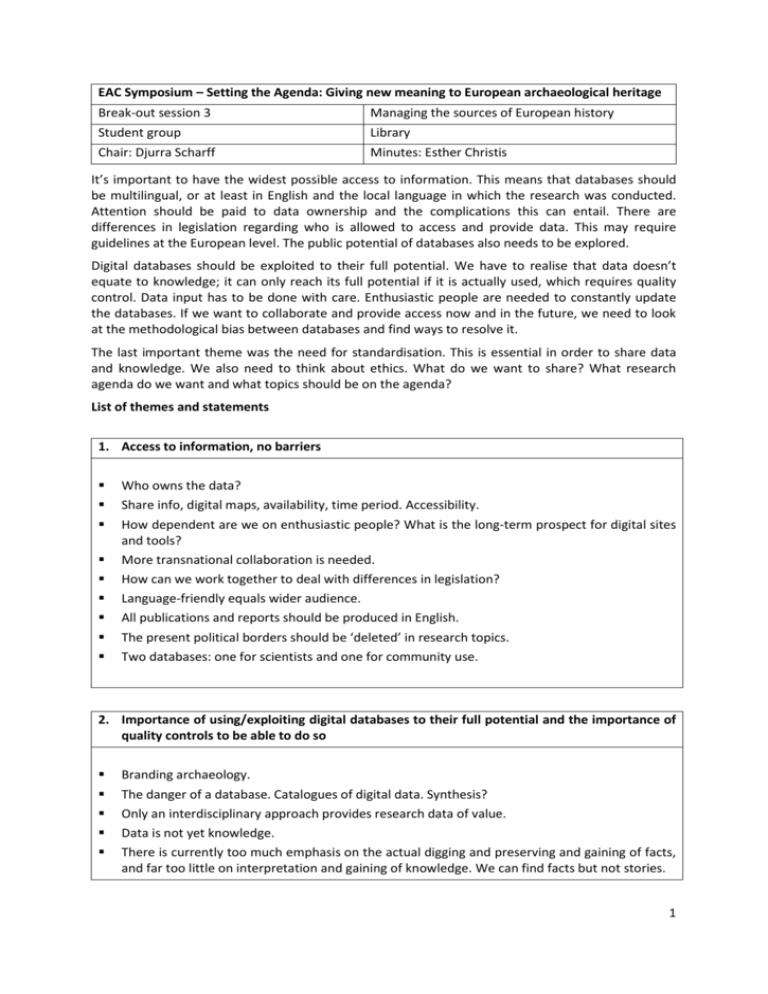
EAC Symposium – Setting the Agenda: Giving new meaning to European archaeological heritage Break-out session 3 Managing the sources of European history Student group Library Chair: Djurra Scharff Minutes: Esther Christis It’s important to have the widest possible access to information. This means that databases should be multilingual, or at least in English and the local language in which the research was conducted. Attention should be paid to data ownership and the complications this can entail. There are differences in legislation regarding who is allowed to access and provide data. This may require guidelines at the European level. The public potential of databases also needs to be explored. Digital databases should be exploited to their full potential. We have to realise that data doesn’t equate to knowledge; it can only reach its full potential if it is actually used, which requires quality control. Data input has to be done with care. Enthusiastic people are needed to constantly update the databases. If we want to collaborate and provide access now and in the future, we need to look at the methodological bias between databases and find ways to resolve it. The last important theme was the need for standardisation. This is essential in order to share data and knowledge. We also need to think about ethics. What do we want to share? What research agenda do we want and what topics should be on the agenda? List of themes and statements 1. Access to information, no barriers Who owns the data? Share info, digital maps, availability, time period. Accessibility. How dependent are we on enthusiastic people? What is the long-term prospect for digital sites and tools? More transnational collaboration is needed. How can we work together to deal with differences in legislation? Language-friendly equals wider audience. All publications and reports should be produced in English. The present political borders should be ‘deleted’ in research topics. Two databases: one for scientists and one for community use. 2. Importance of using/exploiting digital databases to their full potential and the importance of quality controls to be able to do so Branding archaeology. The danger of a database. Catalogues of digital data. Synthesis? Only an interdisciplinary approach provides research data of value. Data is not yet knowledge. There is currently too much emphasis on the actual digging and preserving and gaining of facts, and far too little on interpretation and gaining of knowledge. We can find facts but not stories. 1 Can different methodological datasets be used together? European-wide research is only possible with comparable datasets. Information is useless unless it’s entered carefully into a database. Wrong input can make the information inaccessible. 3. The issue of standardisation: ethics. Do we want this? International agendas in small subfields should be agreed and then followed at a national level. European standards: do we really want them? Screening of information in database. Digital: what do we want to know? What do we want to tell? Collective representation of data and differences in data interpretations? How does that work when you access data? What are we as archaeologists ‘allowed’ to share? What is our role when selecting what should be shared? Do we set the standard for what we share with the public? Access to museum and artifact storage depots. We need standardisation. Accept that you have to put aside your ego for the greater good. 2

